Inonge Kaloustian is a professional footballer and ambassador for the #kickTheSTIGMA campaign, which GIZ is implementing. She plays for the Zambian national team and holds a Master of Health Science (MHS) in Epidemiology from the Johns Hopkins Bloomberg School of Public Health. She combines her experience in sports and academia to promote health equity – especially on the African continent.
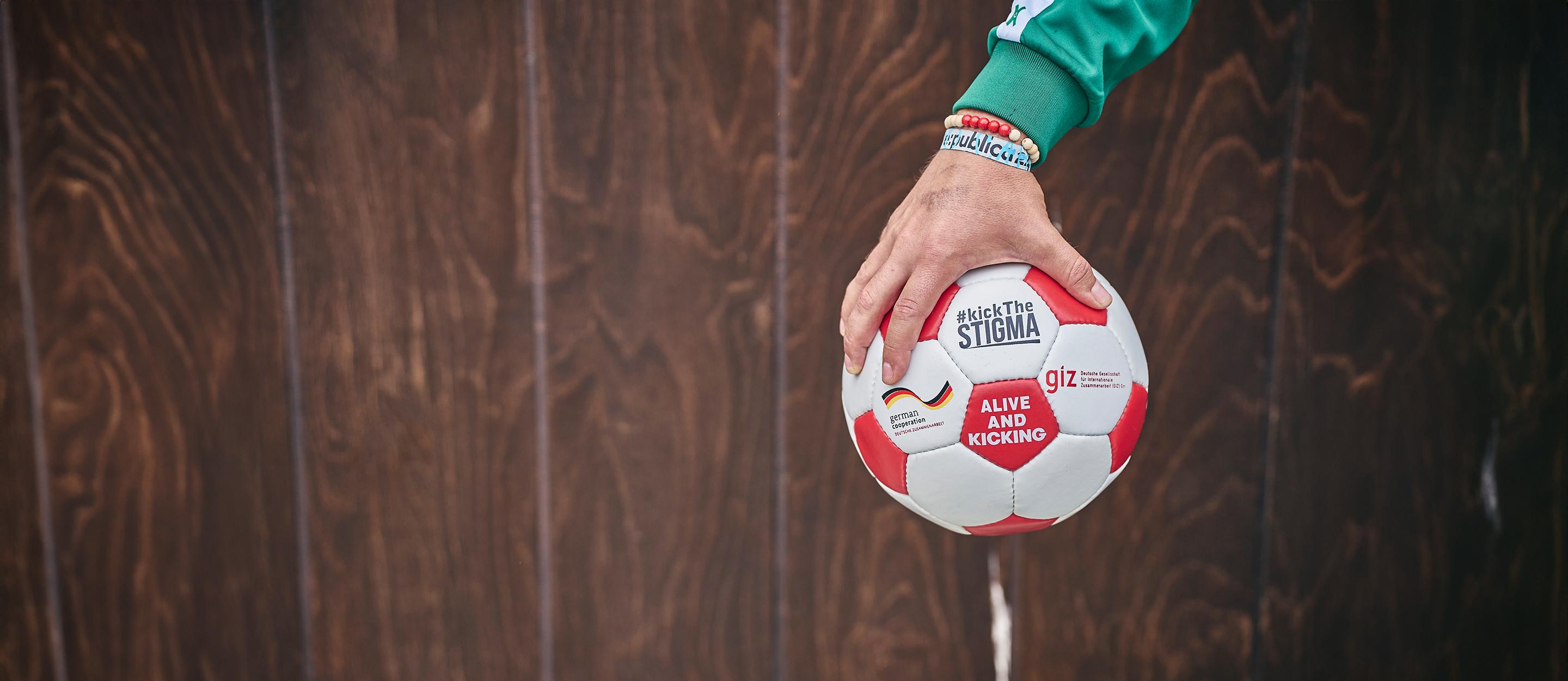 GIZ/Dirk Gornickel
GIZ/Dirk Gornickel
‘Talking openly about menstrual health’
The Zambian national women’s football team is setting an example for women’s and girls’ health. Ahead of the team’s participation in the Olympic Games in Paris, players have launched the #kickTheSTIGMA campaign in collaboration with GIZ. The aim is to break down taboos surrounding the topic of menstruation.
Inonge Kaloustian may have come to Frankfurt without her football boots, but she can still juggle the ball. During the akzente interview, the Zambian international gives a little display of her football talents. She combines sport with her commitment to gender equality. As a GIZ ambassador for the #LetsTalkPERIOD and #kickTheSTIGMA campaigns, the 24-year-old visited Germany in the early summer of 2024, where she met both Federal Development Minister Svenja Schulze and Federal Foreign Minister Annalena Baerbock.
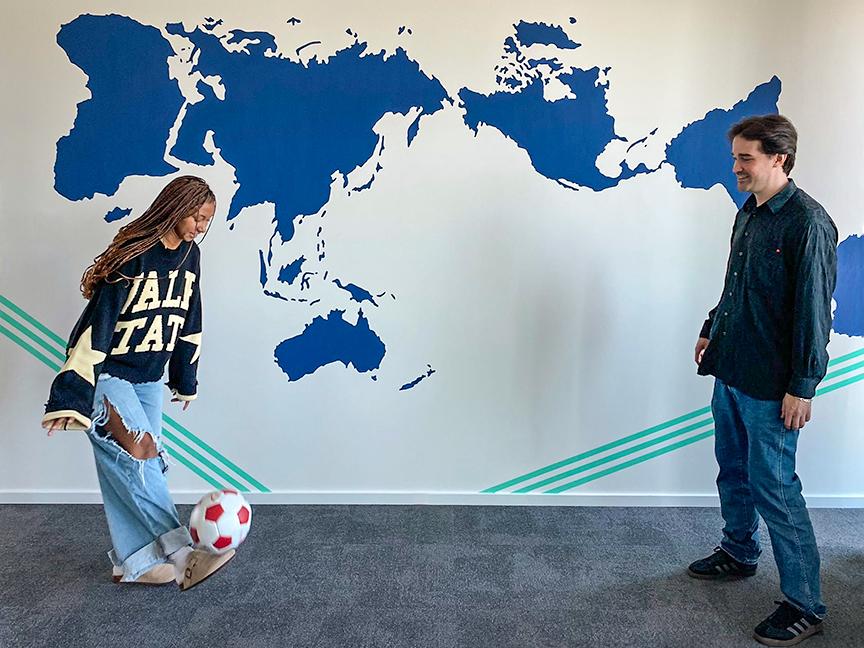 Fazit
Fazit
Inonge Kaloustian and Luca Rehse-Knauf juggling with the ball.
Ms Kaloustian, what motivated you to take part in the #kickTheSTIGMA campaign?
I’m convinced that this will break the taboo on an important health issue. Many people, not only in Zambia, still have problems talking openly about menstruation. During my degree in social epidemiology, I concentrated on the connection between health and social factors such as gender and have developed an awareness for the issue. I was born in the USA and moved to Zambia a year ago. My mother, however, was born and raised in Zambia, and told me how difficult the situation can be, especially for schoolgirls. In rural areas, there are often not enough sanitary facilities. During my visits to schools, I found out that many girls have to stay at home when they have their period. As a result, they miss out on a lot of education in comparison to those who don’t menstruate.
How exactly are you involved?
For example, during outreach we speak to a wide variety of people across communities, including young people, politicians and other public health and human rights advocates about how we can improve the situation. It’s about menstrual health, hygiene and better sanitary facilities. In my opinion, one of the most impactful tactics is simply to get the conversation started around menstruation in order to raise awareness on the issue. I also try to do that in my role as a Zambian national team member. We made a #kickTheStigma video with our team, the Copper Queens, to be positive role models for young girls and women in the face of adversity related to the challenges of dealing with menstruation. We focused on the topic of menstruation in women’s football, but we didn’t limit ourselves to that. We look at the situation in the workplace, in classrooms and in families at home.
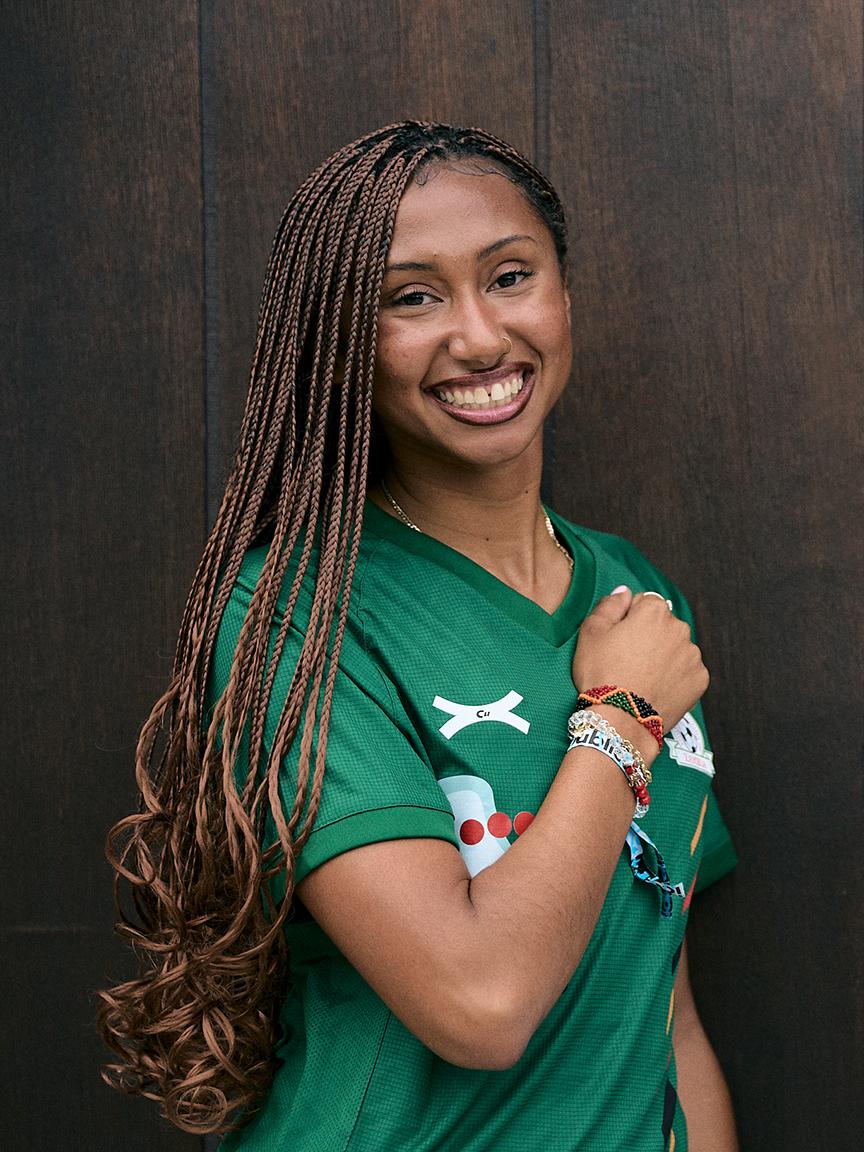 GIZ/Dirk Gornickel
GIZ/Dirk Gornickel
Inonge Kaloustian, Zambian footballer and GIZ ambassador for the #LetsTalkPERIOD and #kickTheSTIGMA campaigns
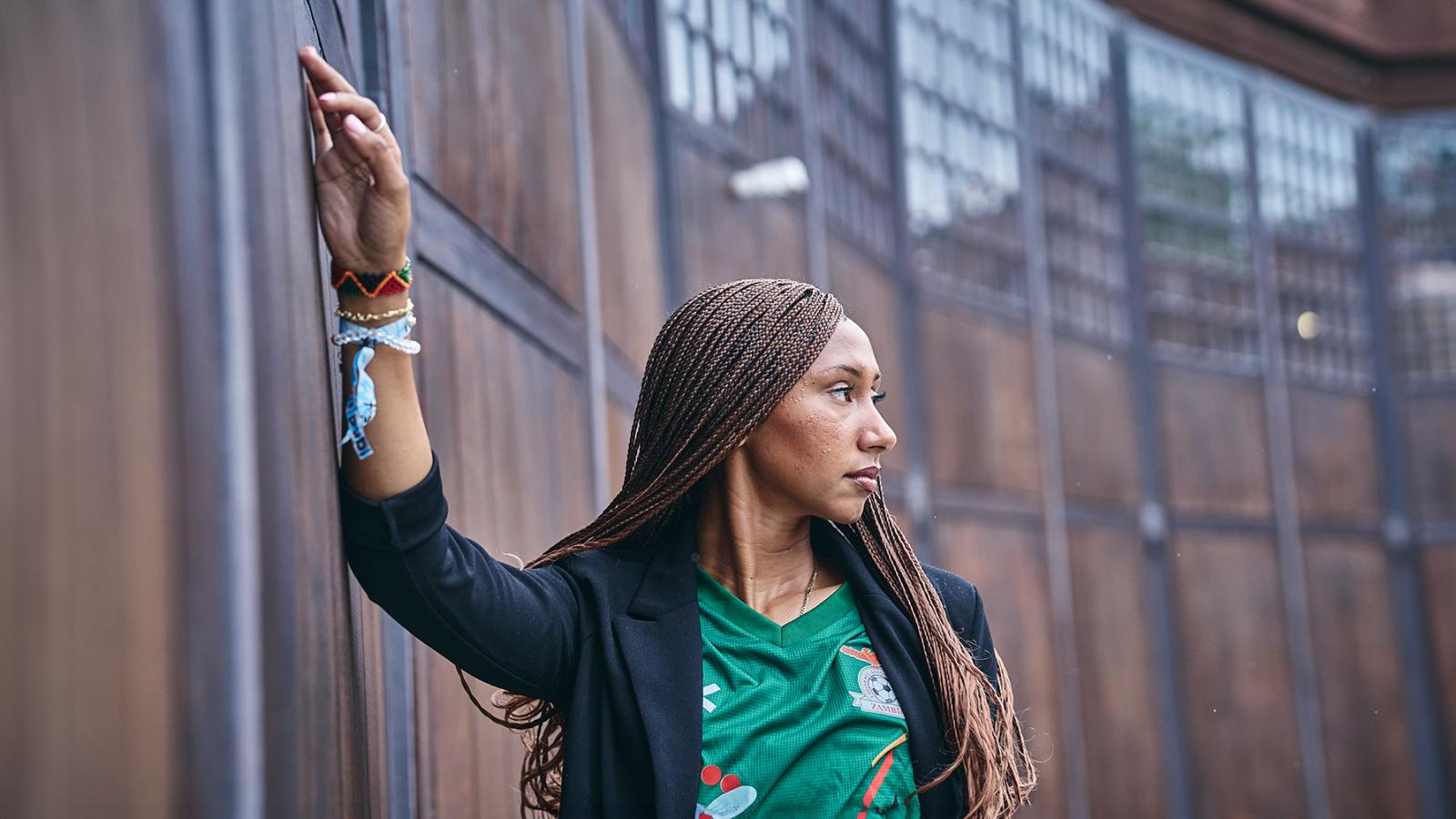 GIZ/Dirk Gornickel
GIZ/Dirk Gornickel
Has anything changed yet?
Definitely, the new generation is no longer so reserved. The Zambian secondary school students I met with were so enthusiastic about the #kickTheSTIGMA campaign. They have developed ideas on how to improve the hygiene situation at their school. Basically, social media offers a critical platform to talk about menstrual health. We’ve had a positive response from people of all ages and genders. I get comments from men on my Facebook page like ‘Great work, you can do it!’ Zambia is a football-crazy nation and through our national team we can really reach a lot of people with this campaign.
You are a citizen of more than one country. How did you decide what country to play for?
I feel closest to my Zambian heritage. Football allows me to stay connected to Zambia. And I realise that I can make a difference there through activism.
#LetsTalkPERIOD & #kickTheSTIGMA
In collaboration with local influencers and well-known personalities, the Deutsche Gesellschaft für Internationale Zusammenarbeit (GIZ) GmbH is working to raise awareness of menstrual health and hygiene. The #kickTheSTIGMA campaign in Zambia builds on Viva con Agua’s award-winning #Dance4WASH campaign and GIZ’s #LetsTalkPERIOD campaigns in Albania, Nepal and the Philippines, which have already reached more than 10 million people since 2021.
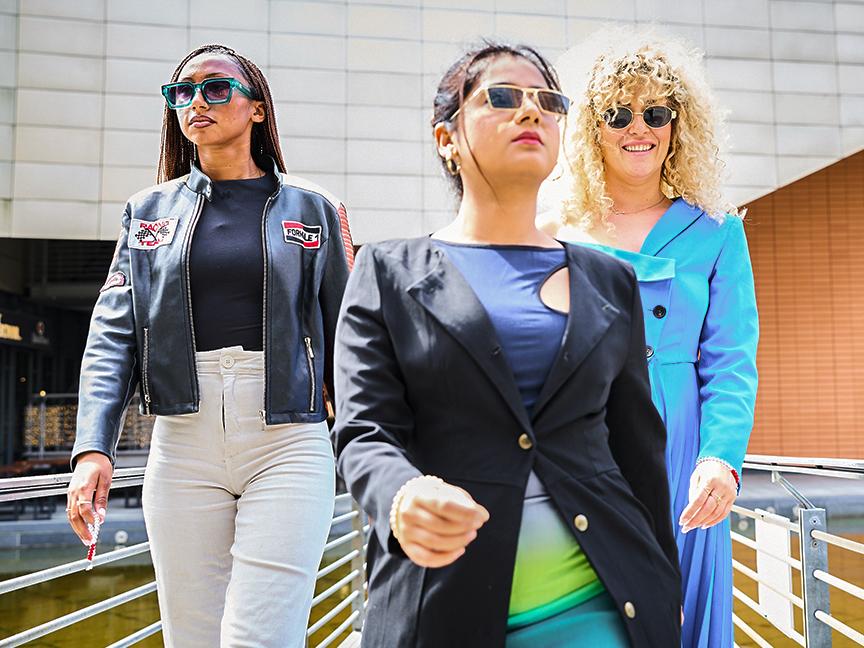 GIZ/Dirk Gornickel
GIZ/Dirk Gornickel